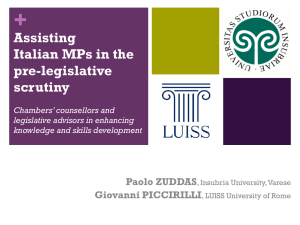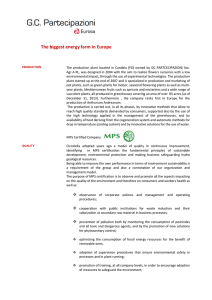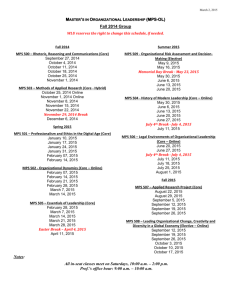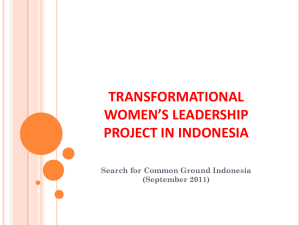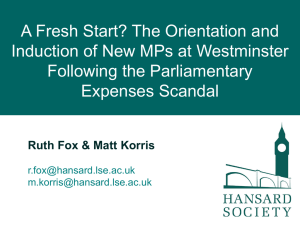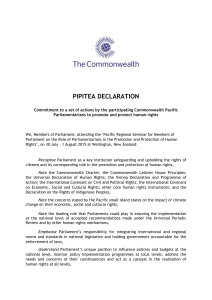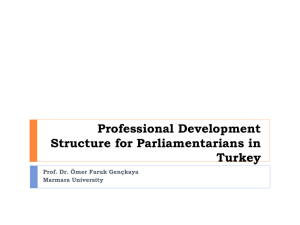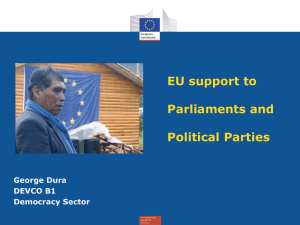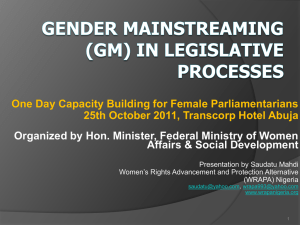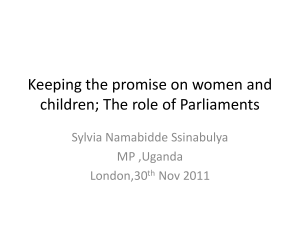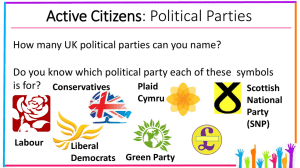The Pakistan Institute for Parliamentary Studies (PIPS)
advertisement
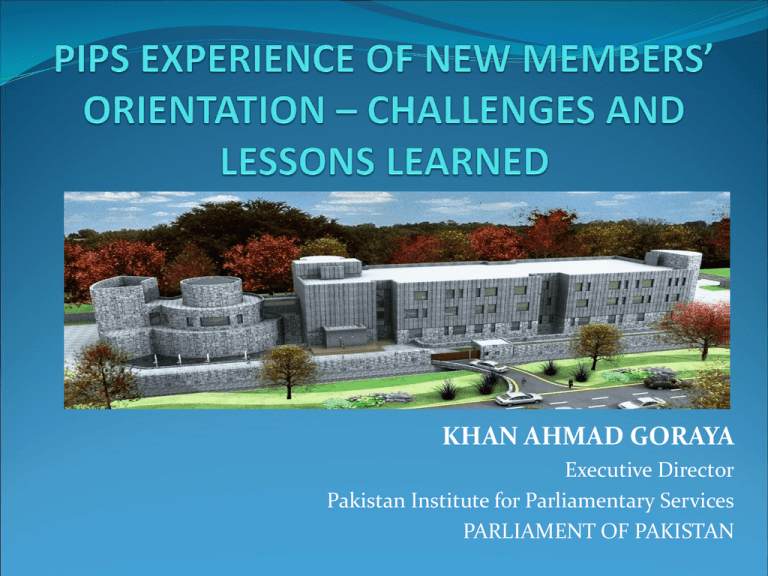
KHAN AHMAD GORAYA Executive Director Pakistan Institute for Parliamentary Services PARLIAMENT OF PAKISTAN PAKISTAN INSTITUTE FOR PARLIAMENTARY SERVICES, PIPS Established through a unanimous Act of the Parliament An exclusive and independent facility for provision of legislative, research, capacity building and public outreach services to over 1,000 parliamentarians in all Houses Board comprises members from all major parties nominated by respective parliamentary leadership. Dr Fehmida Mirza, Speaker, National Assembly of Pakistan, is presently the President, PIPS Board of Governors Held numerous members’ orientations, policy seminars, topical workshops, skill development courses for parliamentarians, functionaries and media men covering the Parliament NEEDS ASSESSMENT AND TASK ANALYSIS PIPS Training Standards and Procedures followed Periodic needs analysis and interviews with MPs Annual Members’ Survey six months before elections June 2010 Parliamentarians’ Needs Assessment - Salient findings: Training Needs: Legislative drafting , effectiveness of committees, budget analysis, oversight and legislative research Time and Duration: One day interactive orientations on particular topics Orientations on Session Days; MPs’ involvement in respective constituencies not affected Abstract of Orientation, Schedule and Facilitators’ Profile along with Invitation, helps MPs in what to gain CONTENT AND FORMAT NEW MEMBERS’ INDUCTION WORKSHOP Two day format ii. Three sessions of one and a half hours each day iii. Presentations followed by Questions and Answers’ session on parliamentary topics iv. Preparation of Twenty one bilingual (21) modules (in English and Urdu, Pakistan’s national language) on parliamentary topics, six months before elections – comprise: i. i. ii. iii. Facilitator’s Guide Participant Book Power Point presentation DAY LONG THEMATIC ORIENTATIONS Key Parliamentary Topics i. Rules of Procedure ii. Law Making iii. Assessing a Bill iv. Effectiveness of Committees v. Budget Analysis vi. Question Hour Challenge MPs’ attendance varied from low to above average THREE DAYS OUT-STATION PROFESSIONAL WORKSHOPS i. Focused on technical topics: a. Rules of Procedure and Business of the House b. Law Making c. Assessing Bills ii. Held at resorts iii. Innovative participatory techniques iv. Parliamentarians undertook group work and presentations v. Active participation of 20-25 MPs FACILITATORS FOR PARLIAMENTARY ORIENTATIONS Former Speakers Reputable former parliamentarians respected by all political parties Secretaries General and officials of the secretariats Professionals: judges, attorneys, academicians, budget analysts Institute’s faculty MPs preferred to the point presentations Challenge: dearth of facilitators on legislative drafting and legislative research MOTIVATION OF PARLIAMENTARIANS Members’ Induction Programme must be persuasive and comprehensive in pronouncement, content and delivery Lessons learnt to ensure MPs participation: i. Orientations on topics of MPs’ interest and need ii. Venue for 3 days professional workshops at resorts iii. Reputable experts as facilitators iv. To the point presentations v. Role of party leaders , committees chairs and parliamentary groups/forums vi. Role of Speaker’s Office in motivating MPs EVALUATION AND IMPACT ASSESSMENT Evaluation on Likert Scale for each Workshop a. Content and knowledge b. Style and delivery c. Responsiveness d. Learning environment e. Shortcomings and Suggestions invited Annual Members’ Survey 2008, 2009 and 2010 a. Parliamentarians participation in legislation and committee work, b. Support of Secretariats to MPs c. Over all effectiveness of the Parliament
